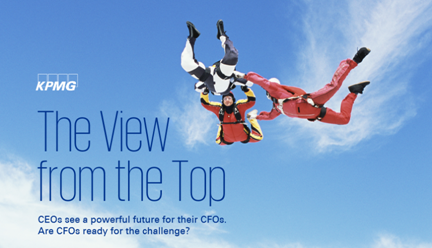
CEOs set a high bar for their CFOs. They want an individual who can maintain a full grasp on the numbers while keeping a forward-looking focus on customers and the markets, developing talent and leveraging the power of technology. At the same time, CFOs need to go beyond the numbers to tell a good story to analysts, investors and the press as well as turn data into actionable intelligence. They need to possess strong leadership qualities, understand and collaborate with operations, and think and act globally.
Enter the Renaissance CFO – an individual who builds on the wisdom of the past, embraces the technology of the present and imagines the innovation of the future. Any senior finance executive must assume many roles — from comptroller to technology evangelist — but the Renaissance CFO is an individual who embraces and transcends all of these roles to be a leader within the organization and beyond the finance function.
This is a tough ask for any one individual but there are strong forces driving these demands. Every CEO wants to harness new ways of engaging with their markets and their customers. They are worried about accelerating product life cycles and competitors upending their business model. Many are planning transformative acquisitions or major divestitures. They see shifting regulations across global operations driving the need for better data and analysis. And they all expect their CFOs to share in these priorities.
Unfortunately, not all CFOs are living up to the challenge. According to the KPMG and Forbes Insights global report, The View from The Top, in which more than 500 CEOs and business executives were interviewed, nearly a third of CEOs say their CFOs don’t understand and assist with the challenges that they face within the organization. Why is dissatisfaction so high? Maybe part of the answer is hidden in the attributes that CEOs expect their CFOs to possess.
At most companies, the CEO remains the ultimate strategist. But even the most decisive CEO needs the strategic input of their finance team. Every CEO interviewed provided examples of how much they rely on their CFO for strategic guidance. When asked to name the greatest contribution a CFO can make, CEOs ranked performance and growth first. When it came to explaining how CFOs can use financial information to strengthen the alignment between financial planning and strategy, three words came up consistently: translate, interpret and communicate.
Organizations are in a state of continuous change, and the CFO needs to be able to understand and have experience beyond the finance function identifying areas for growth and operational excellence across all business domains. This requires a range of skills, from the foundation and basics of the finance function to a strategic level with a focus on the outside world.
In this Renaissance era, CFOs must find ways to improve and capitalize on business insight, leverage new tools and technologies, drive strategies and decisions, take corrective actions, and be a bold strategic leader for the business. To cultivate a career path for the Renaissance finance executive, organizations should look at a planned approach to moving people in and out of the finance function and into line operations, into different geographies, and working through succession planning across functions.
Are you a “Renaissance CFO”? Consider these questions:
- How can I become a stronger global leader for the company?
- How can I better partner with sales, customer and operations to improve enterprise planning and performance?
- How can I be a more proactive player in the regulatory environment and help shape policies and processes and leverage key insights to realize competitive advantage?
- How can we transform data and analysis to identify opportunities to improve profitable growth?
- Do we have a sustainable operating model that also attracts, develops and retains top talent in this new millennial age?
CEOs expect a lot of their CFOs. They want leaders who drive strategy and motivate teams across the enterprise. They are looking for a closer partnership between finance, technology and operations — led by an executive with global experience who understands the industry and the market. CEOs need someone who can execute when it comes to data analysis, interpretation and modeling, from crunching the numbers to telling the story. They want an individual who can transform every challenge into an opportunity.
The View from the Top is based on a survey of more than 500 executives in North America, Europe, South America, the Middle East, Africa, Asia and Australia in 2014/2015. All of the firms surveyed reported annual revenue of US$500 million or more and all of the executives who responded had responsibility for overseeing the finance function. Learn more here.